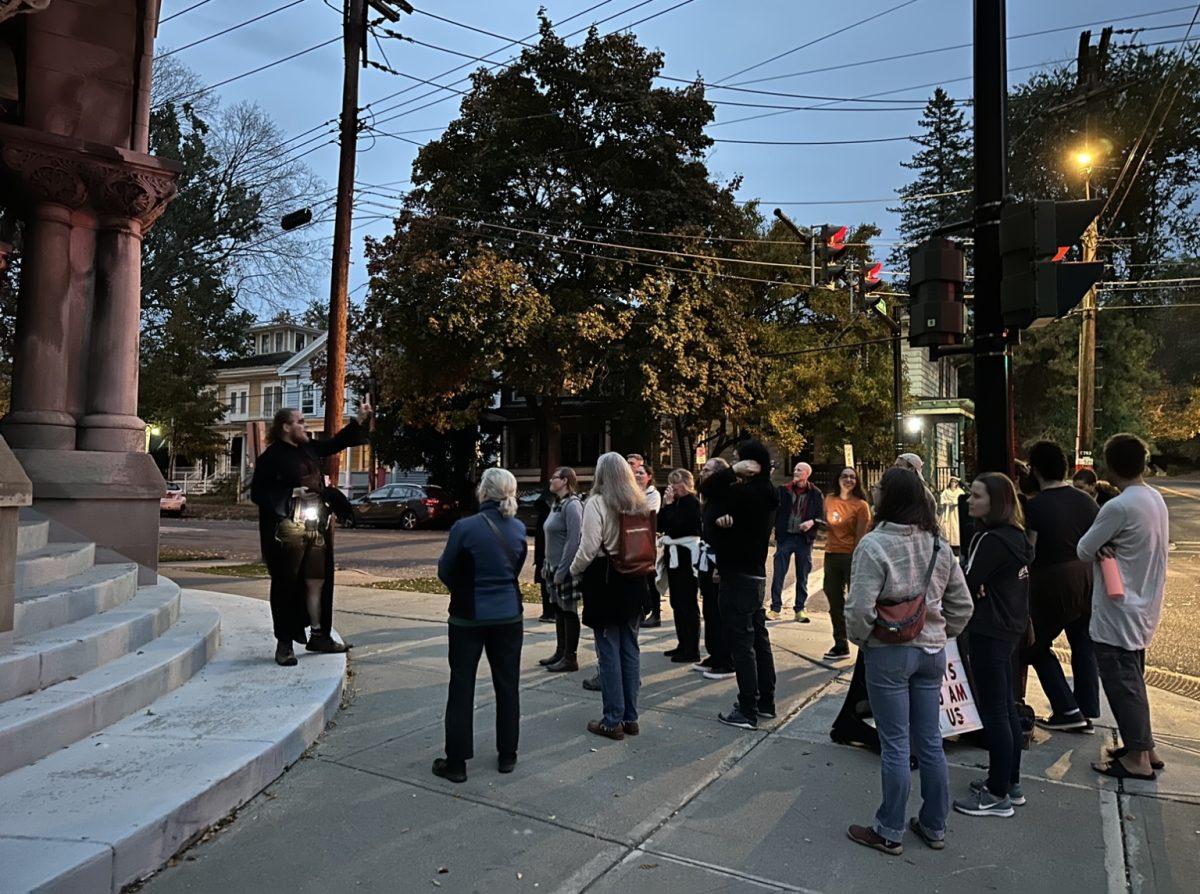Ithaca – Mar. 3, 2014 – Jeff Furman is known as the man behind-the-scenes, the ampersand in “Ben & Jerry’s.”
Chair of the board of directors of the Vermont-based ice-cream company, Furman is no ordinary businessman. He is a lawyer in disguise, said Brad Edmondson, Furman’s long-time friend and writer of the recently published book about the company.
“He’s got long grey hair and a big beard and he smiles a lot,” Edmondson said. “And even on a day when it’s 10 degrees outside, he’d be wearing a T-shirt.”
Furman came to Cornell to study engineering and flunked out in 1963. He then left Ithaca but the city drew him back in 1976 and he has lived here since.
He and his board oversaw the company’s transition when it was sold to Unilever in 2000. Furman said that the sale of Ben & Jerry’s had created concern about the company’s ability to adhere to its original mission statement.
“There had been so many questions coming up to us as board members and to Ben & Jerry’s about why it is owned by Unilever, what is the relationship, how does it work,” Furman said. “So we wanted to get that part of the story out to folks.”
Edmondson collaborated with Furman to bring the Ben & Jerry’s story to a larger audience. His book, “Ice Cream Social: The Struggle for the Soul of Ben & Jerry’s,” chronicles the company’s struggle to stay true to its progressive roots during the Unilever sale.
Edmondson said Ben & Jerry’s has three mission statements: Minimizing their environmental impact; maximizing the amount of good they do in their communities; and making a profit while paying their employees well.
“The reason behind the book is that even though they were forced to sell to Unilever, the three part mission endured,” Edmondson said. “In the condition of sale, Unilever agreed to a very detailed legal document that preserved the board of directors of Ben & Jerry’s as an independent entity that Unilever does not control or supervise. It allowed this independent board to exist forever.”
Edmondson said Ben & Jerry’s employs about 600 people and Furman said these workers are paid a living wage of $16.13 an hour. Last year, the company pledged to transition to non-GMO sourced foods. Furman and his board also work to ensure fair trade right down to the West African cocoa farmers.
Edmondson said it is rare in that such a large entity has managed to maintain a core of social responsibility.
“What I’ve noticed about huge social issues and forces is that often the most important things aren’t discussed very openly,” he said. “Because they’re so big everyone takes them for granted. The idea that a corporation can do something besides pursue profit goes against a lot of people’s received wisdom of what business are for.”
However, Edmondson said there is a small but fast-growing movement to change the rules that govern a typical corporation.
Furman said participation from powerful corporations are a necessity when advocating for social change. He also said a business that is socially responsible and aware makes for an effective model.
“I think it’s the only feasible model for dealing with some of the major issues in our world,” he said. “We have demonstrated that it is possible to do.”
For Furman, the rewards of the job are many — but it all comes down to feeling a sense of fulfillment.
“I wouldn’t want to have a career where I couldn’t bring my whole being to it, which includes both my heart and my head,” he said. “You are lucky if you can find one of those.”







